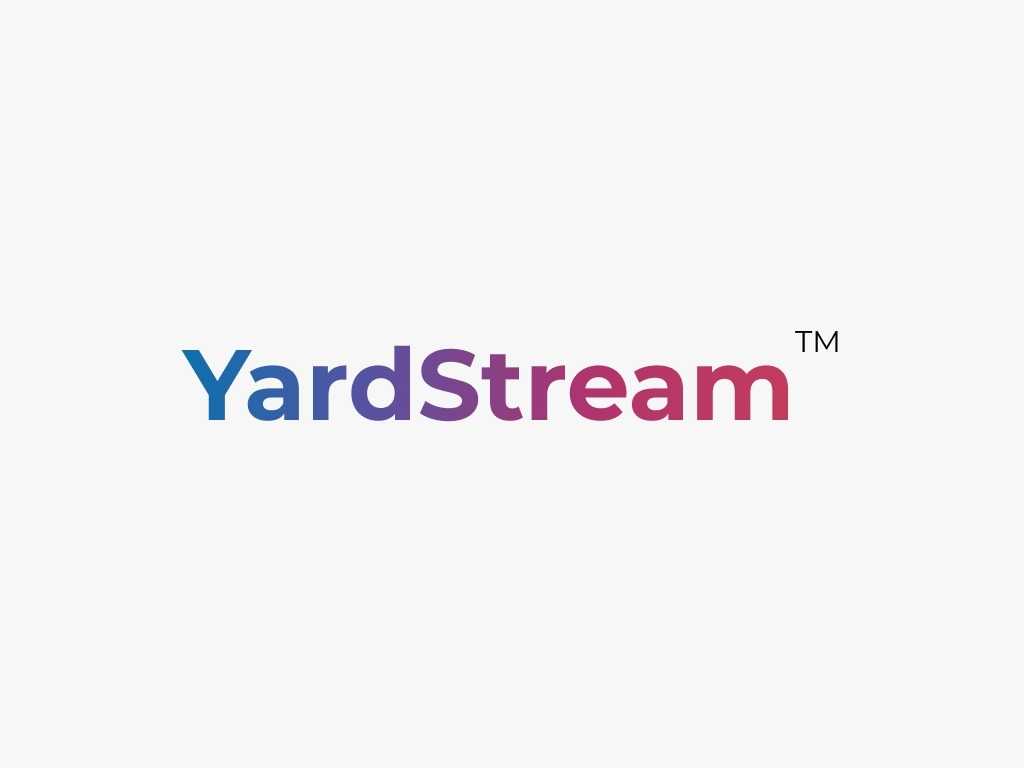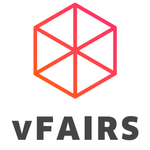What Is Event Marketing Software?
One effective tool that helps companies organize, coordinate, and carry out successful events is event marketing software. From event registration and promotion to post-event analysis and reporting, it is a one-stop shop for all your event marketing requirements. Event marketing software has become crucial for businesses of all sizes and sectors due to the growth of virtual events and the growing significance of consumer involvement.
However, what is event marketing software exactly? Fundamentally, it is a cloud-based platform that simplifies and automates a number of event planning and promotion-related duties. This include making landing pages for the event, sending out reminders and invitations, handling registrations, gathering information about attendees, and advertising the event using a variety of platforms, including websites, social media, and email.
The capacity of event marketing software to produce branded and customized event experiences is one of its primary characteristics. Businesses may create a unified and polished image for their events with customisable event templates and branding options. This improves the whole experience of consumers and builds brand reputation in addition to drawing in more people.
Businesses may monitor attendance, engagement, and return on investment (ROI) with the help of event marketing software's sophisticated analytics and reporting features. Making educated decisions for upcoming events and assessing the success of an event are both possible with this data. Furthermore, a lot of software tools for event marketing interface with CRM programs, offering useful information about how events affect client relationships.
The capacity of event marketing software to facilitate virtual events is another crucial feature. Given the state of the world today, virtual events have grown in popularity and are probably going to stay that way even after live events start up again. With capabilities like live streaming, virtual networking, and interactive sessions, event marketing software makes it easier to create and run virtual events.
What Are The Recent Trends In Event Marketing Software?
Businesses of all sizes now depend on event marketing software to effectively organize and carry out events. With the use of these software programs' many features and capabilities, event planners may improve attendee engagement, expedite procedures, and monitor event success. The way events are organized and carried out has changed dramatically as a result of notable developments and trends in the event marketing software sector in recent years.
Let's examine some of the most current developments in event marketing software that consumers should consider before making a purchase.
1. Data-Driven Decision Making: Event marketing software can now give organizers important information on their guests, their behavior, and the effectiveness of their events thanks to the availability of data and analytics tools. In order to enhance the entire event experience, this data-driven strategy assists event planners in making decisions that are supported by data.
2. Personalization: In the current digital era, guests anticipate a customized event experience. These days, event marketing software comes with features that increase participants' sense of connection and engagement, such as personalized registrations, content recommendations, and tailored communications.
3. Virtual And Hybrid Events: Event marketing software has had to change and adapt to various formats due to the recent surge of virtual and hybrid events. To improve the virtual and hybrid event experience for attendees, these systems now include elements like networking tools, virtual exhibition halls, and live streaming.
4. Social Media Integration: Event marketing software has embraced this trend by providing social media integration, as social media has grown to be a crucial component of event marketing. This enables event planners to easily use the software to advertise their events, interact with guests, and collect data from social media platforms.
5. Tool Integration: Software for event marketing is no longer an isolated solution. The newest trend in event marketing software is to provide interfaces with other company tools and systems in order to simplify procedures and produce a cohesive event planning experience.
Benefits Of Using Event Marketing Software
A potent technology that has the potential to completely transform how companies organize, carry out, and evaluate their events is event marketing software. This program streamlines the entire process by automating a variety of event management duties, allowing companies to produce more captivating and prosperous events. The following are some advantages of utilizing software for event marketing:
1. Simplified Event Preparation: Event marketing software simplifies every step of the event preparation process, from choosing a location to selling tickets. Businesses can save time and money by using it to construct event websites, handle registrations, and even send out automatic email invitations.
2. Personalized Communication: Companies can use event marketing software to tailor communications to attendees' interests and choices. This makes it possible to use tailored messages, which can greatly raise attendee satisfaction and event participation.
3. Better Attendee Experience: Mobile apps, real-time polling, and interactive agendas are just a few of the elements that event marketing software provides to improve the experience of attendees. The event is made more interesting and memorable by enabling simple check-ins, real-time updates, and networking opportunities.
4. Cost-Effective: Although event planning can be costly, there are a number of ways that event marketing software can assist companies in cutting costs. This software can help organizations reduce expenses and enhance their event marketing budget by automating operations, decreasing the need for manual labor, and offering insight into data and ROI.
5. Real-Time Data And Insights: The capacity to gather data and insights in real-time during the event is one of the major benefits of utilizing event marketing software. Businesses may use this data to make better decisions and enhance future events by gaining insightful knowledge about the behavior, engagement, and preferences of attendees.
6. Smooth Team Collaboration: Teams may work together in real time and cooperate easily with event marketing software. A more planned and effective event results from this since it is simpler to assign tasks, monitor progress, and make sure that everyone is in agreement.
7. Detailed Analytics: With the help of robust analytics and reporting features, event marketing software gives companies a thorough picture of how well their event performed. Businesses may use this information to gauge the success of their event and make data-driven decisions for subsequent gatherings, including registration numbers and attendee participation.
Important Factors To Consider While Purchasing Event Marketing Software?
Having the appropriate event marketing software is crucial for effectively planning and publicizing events. This software helps boost productivity, improve event attendance, and streamline business operations. However, selecting the best solution for your unique needs might be difficult due to the abundance of possibilities on the market. The following crucial elements should be taken into account when buying event marketing software in order to assist you in making an informed choice:
1. Target Audience: Your target audience should be your first consideration. Different audiences are served by different event marketing tools. For instance, software with robust social media and influencer marketing features can be necessary if you are aiming to reach a young audience. However, if professionals make up the majority of your audience, you could need software with sophisticated email marketing and lead creation capabilities.
2. Features And Functionalities: There are many features and functionalities included in event marketing software. It's critical to thoroughly evaluate and identify the characteristics that are critical to your event marketing plan. Email marketing, social media management, event registration, analytics, and lead generation are a few typical features. Before buying, make a list of your unique needs and compare them to the characteristics of the product.
3. Integration With Other Tools: CRM, email marketing, project management software, and other systems and tools should all work in unison with your event marketing software. This will guarantee seamless connection and data transfer between platforms and save you time and effort while managing different tools.
4. User-Friendliness: This is still another important consideration. Even for people with little technological expertise, the software should be simple to use and navigate. To help you quickly become familiar with the software, it should also include training and support materials.
5. Cost And Scalability: Before making a purchase, you should think about your spending limit and the software's scalability. While some software has a set pricing, others charge by the event or on a subscription basis. To make sure the software can grow with you, consider your present and future event marketing requirements.
6. Security And Data Protection: Data protection is a major concern for businesses due to the growing risk of cyberattacks. Verify that the event marketing software you select has the appropriate security features in place to safeguard both your data and the information of your guests.
7. Client Reviews And Testimonials: Examining client reviews and testimonials can reveal important details about the functionality and contentment of the software. Search for reviews on social media and other websites run by third parties, as these are more likely to be objective. You may choose the event marketing software that best meets your company's needs by taking these aspects into account. Before making a purchase, don't forget to utilize the free trials and demonstrations that the majority of software vendors give to check out the features and functionalities.
What Are The Key Features To Look For In Event Marketing Software?
There are a number of important factors to take into account while choosing event marketing software. The success of your event and your entire marketing plan may be greatly impacted by these elements. The following are some crucial characteristics to search for:
1. Event Management Capabilities: An event management tool that makes it simple to plan, advertise, and oversee your event is one of the most important characteristics to take into account. Seek for software with functions like ticketing, event registration, and attendee management.
2. Email Marketing Automation: One of the most effective marketing methods is still email. In order to deliver timely and targeted notifications to your attendees in the lead-up to the event, make sure the event marketing software you select has email marketing automation features.
3. Social Media Integration: Social media is essential to event marketing in the current digital era. Choose software that lets you simply write and schedule posts, track engagement, and keep an eye on hashtags and mentions. It should also link with the main social media platforms.
4. Data Analytics And Reporting: Data is crucial for assessing the event's effectiveness and helping you make well-informed decisions about your next marketing campaigns. Select software that offers thorough reporting and analytics, including indicators like ticket sales, attendance demographics, and registration statistics.
5. Event Website And Landing Page Builder: The success of your event can be greatly impacted by a well-designed landing page or event website. Seek out software that has a mobile-responsive design, ticket purchase choices, and an easy-to-use website builder with configurable designs.
6. Mobile App Integration: Having a mobile app integrated with your event marketing software can improve the experience of attendees, as the majority of people use their cellphones for chores relating to events. It can offer functions like networking opportunities, session reminders, and event calendars.
7. Sponsor Management: If sponsors are involved in your event, think about using software that provides sponsor management capabilities including lead creation, sponsor marketing possibilities, and ROI metrics.
8. Customer Support: You could occasionally require help, even with the most user-friendly program. Choose a supplier who provides dependable customer service by email, phone, or live chat. Some software even provides round-the-clock assistance for pressing problems.
Why Do Businesses Need Event Marketing Software?
For companies of all sizes and sectors, event marketing software, or EMS, has become a vital tool. EMS has significantly changed how companies organize, advertise, and carry out their events, from handling massive conferences and trade exhibits to organizing local networking events. However, why is event marketing software necessary for businesses? Let's examine the main justifications:
1. Effective Event Planning: Organizing an event involves a lot of work and coordination between several stakeholders. Event scheduling, task management, and communication tools are just a few of the capabilities that EMS provides to help make sure that nothing is overlooked during the planning process.
2. Smooth Event Promotion: The effectiveness of an event's promotion has a significant impact on its success. To assist companies in reaching their target audience and increasing event registrations, EMS provides a variety of promotional options, including email marketing, social media integrations, and targeted advertising.
3. Customized Experience For Attendees: Customers of today need customized experiences, and events are no different. Businesses can improve participants' entire experience and happiness by using EMS to build customized event websites, agendas, and targeted messaging.
4. Data-Driven Insights: Having access to real-time event data is one of the biggest advantages of employing EMS. Businesses can obtain useful information from registration numbers and attendee demographics to assist them make wise decisions and improve the results of their events.
5. Cost-Effective: Although holding events can be expensive, EMS can ultimately save companies money. EMS may drastically save event expenses without sacrificing event quality by automating procedures, decreasing manual labor, and doing away with paper and print materials.
How Much Time Is Required To Implement Event Marketing Software?
The particular solution and the requirements of your company will determine how long it takes to establish event marketing software. Some software can be fully integrated into your present systems and processes in a matter of weeks, while others can be set up and operational in a matter of hours. The implementation process and the resources required to get it up and running should be taken into account before investing in event marketing software. This covers the time required for data migration, training, and customization to meet your event goals and branding. The following variables may impact how long it takes to develop event marketing software:
1. The Complexity Of Your Events: Compared to a corporation that prepares several, large-scale events with different tracks, sessions, and speakers, the implementation time may be quicker if you plan straightforward, one-time events.
2. Integration With Other Tools: It could take longer to set up the required integrations and guarantee smooth data flow between systems if you intend to use the event marketing software in conjunction with other platforms or tools, such a CRM or email marketing software.
3. Customization: Every company has different event objectives and branding, so event marketing software might need to be tailored to meet your demands. This can entail establishing attendance surveys, constructing registration forms, or developing a branded event website.
4. Onboarding And Training: This crucial phase in the implementation process makes sure that every team member is conversant with the program and its functionalities. The software's complexity and the number of your staff can affect how long the training takes. It's crucial to devote the required time and resources to completely integrating event marketing software into your event planning process, even though the implementation time may vary.
What Is the Level of Customization Available in Event Marketing Software?
In order to contact potential attendees and create excitement about the event, marketing is essential to organizing successful events. As technology has advanced, event planners are increasingly using event marketing software to optimize their marketing campaigns. However, what distinguishes this software from conventional marketing strategies? The degree of personalization is the answer.
With the high degree of customization that event marketing software provides, event planners may design individualized and focused marketing campaigns. This implies that you can adjust your marketing plan to fit your brand identity, event objectives, and target demographic. The capacity of event marketing software to divide and classify your audience according to their demographics, interests, and behavior is one of its primary features.
This enables you to target particular groups with tailored emails, social media postings, and other marketing materials, guaranteeing that your message is impactful and pertinent. Designing and branding your marketing materials is another way that event marketing software allows for customisation. You can make visually appealing emails, social media posts, and landing pages that complement your brand using configurable templates and drag-and-drop capabilities.
This increases the likelihood of engagement by improving the visual attractiveness of your marketing materials and fostering brand consistency. Additionally, event marketing software gives you greater control and flexibility over your promotional operations by enabling you to schedule and automate your marketing campaigns.
Which Industries Can Benefit The Most From Event Marketing Software?
An effective tool for planning, promoting, and carrying out successful events, event marketing software can aid a variety of businesses. This powerful and adaptable software may improve attendance and engagement, expedite the event planning process, and yield useful data for next marketing campaigns. Which sectors stand to gain the most from event marketing software, then? Let's examine.
1. Technology: The technology sector is always changing, and events are essential for introducing new goods and services. Tech firms may reach a larger audience, get feedback from guests, and effectively promote their events with the use of event marketing software.
2. Healthcare: Event marketing software has become even more crucial since telemedicine and virtual events have grown in popularity in the healthcare sector. By using this software, healthcare companies may advertise webinars, virtual conferences, and other online events to a wider audience and give participants a smooth experience.
3. Education: Throughout the year, the education sector organizes a range of events, including conferences, workshops, and career fairs. Educational institutions can use event marketing software to effectively advertise these events, handle registrations, and interact with participants through tailored messages.
4. Retail: Events are a great method to draw in and keep customers in the fiercely competitive retail sector. Retailers can use event marketing software to track attendance and sales data to gauge the success of their events, maintain their customer database, and offer targeted incentives.
5. Non-Profit: Events are an essential component of fundraising for non-profit groups. Nonprofits can utilize event marketing software to track engagement and participation levels, manage event registrations and donations, and reach a larger audience with their message.
6. Hospitality: To draw and keep guests, the hospitality sector, which includes hotels, eateries, and event spaces, mainly depends on events. Event marketing software may help with handling event registrations, developing tailored campaigns based on consumer data, and provide real-time statistics to gauge the success of their marketing plans.
7. Finance: A variety of events, including conferences, seminars, and networking gatherings, are held in the finance sector. Financial firms may analyze the return on investment (ROI) of their event marketing efforts, promote their events to the appropriate audience, and gather participant data with the use of event marketing software.
Conclusion
In conclusion, the performance of your events can be significantly impacted by your company's choice of event marketing software. You can select the ideal solution for your particular requirements by focusing on the main features, cost, ease of use, and integrations. When you're choosing, don't forget to consider your budget and your goals.
There is software available to assist you accomplish your objectives and wow your guests, regardless of whether you are searching for a complete all-in-one solution or specific tools to enhance your present event plan. To determine which software choice provides the best return on your investment, be sure to do extensive research and test out several options.
Additionally, don't hesitate to contact customer service with any more queries or worries or to get references. You can choose the best event marketing software for your company with confidence if you follow the instructions in this buyer's guide. So go ahead and use the appropriate tools to help you take your events to the next level.






















